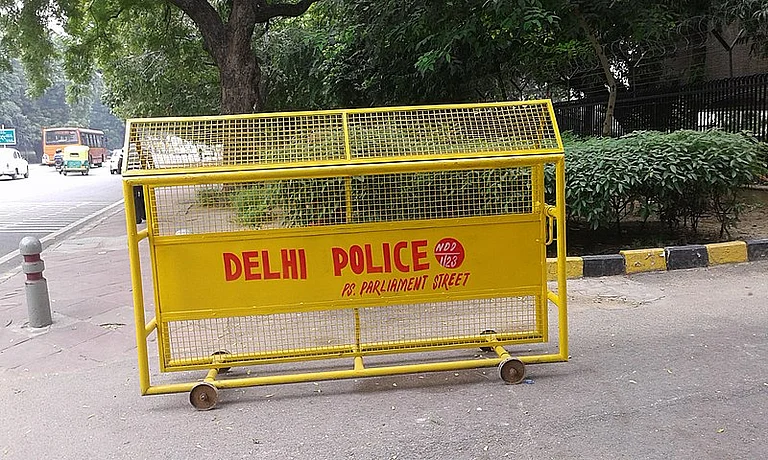Island Of Conflict, Controversy
- Anti-American Parts of the US media say Al Jazeera deliberately encourages "anti-American sentiment”
- Pro-American It is accused of being pro-US by some rival TV channels, indication of its growing heft
- Unprofessional Some feel it has faltered in its coverage of conflicts in trouble spots Libya, Syria
- Mouthpiece? Its neutral stance on protests in Bahrain (which is close to Qatar) has caught some flak
***
A new player in the crowded market of Indian news channels hardly makes news these days. But we are talking about the feisty Al Jazeera here, not the Arabic news channel that got kicked out a few years ago, but its English-speaking cousin, Al Jazeera English (AJE), that went mainstream in Indian metros this fortnight. And if the buzz among the chatteratti—which is drawing journalists, TV anchors, distributors and diplomats into the debate—is any sign, AJE is already opening doors into Indian living rooms.
At one level, this is understandable because AJE’s increased visibility comes at a strange time—when a parallel discourse is on about attempts by the government to curb journalists with proposed red lines on what the media can or cannot cover. Al Jazeera is known for being the bristling alternative voice, for its viral street reporting and, no surprise, in the process, it has courted controversy time and again, that too in many countries around the world. Many a time, ruling regimes have not taken kindly to its sometimes incendiary style. The fact that in India too it’s a sort of second coming—having fallen foul of the BJP-led NDA in its first avatar—is thus a vitally relevant one. The question is, what will it bring to the Indian table this time?
“In today’s global climate, Al Jazeera is one of the most important and influential TV channels in so far as it challenges the monopoly control over world news exercised by western broadcasters,” says former Indian diplomat Talmiz Ahmad, who, as India’s ambassador to a number of countries in the Arab world, had a front row seat in seeing the channel’s growing popularity over the years.
Technically, AJE has been around in India for over a year now, but was only available through DishTV and in pockets via local cable operators. But they are looking at more eyeballs now, and that too in the big cities, which is how Tata Sky came to be added to its distributors list a few weeks back. The channel, which is available in over 250 million households globally, aims to add about 25 million households in India soon.

Al Jazeera crew going live at their Delhi office. (Photograph by Jitender Gupta)
Al Jazeera’s earlier foray into the Indian market was in early 2000. And it did not go smooth, especially after the Gujarat riots of 2002, when the “aggressive coverage” of its correspondent drew the notice of the BJP government. Though many Indian channels were as robust in their coverage of Gujarat, the authorities found the Doha-based Arabic channel easy meat. It was banned from operating in India and even the said correspondent’s press accreditation was cancelled. It took several years for Al Jazeera English, launched in 2006, to convince the Indian government to allow it to operate in the country. A lucky break in late 2008 helped. Talks show host and celebrity Riz Khan, who had joined AJE, was in Mumbai to do a live show with Bollywood actor Shahrukh Khan. While he was there, 26/11 happened and AJE got some first-mover advantage, being the first international channel to not only broadcast the unfolding drama live but also the first to piece together events for a ‘big picture’ story, narrating the horrific event to viewers around the globe.
So will Al Jazeera be more cautious this time in its approach to covering news from India? Anmol Saxena, AJE’s country head and bureau chief in India, was more than a tad diplomatic. “We will continue doing what we do best...cover news developments in an independent manner to make viewers understand the unfolding events better,” he told Outlook.
That may be, but opinion is also now divided on whether Al Jazeera is as impartial in news coverage as it used to be. The channel came into existence in 1996 after the BBC closed down its Arabic service. Much of the staff and journalists, rendered jobless, joined Al Jazeera. The “liberal left” was a dominant view among the journalists and with the backing of the Emir of Qatar, Sheikh Hamad bin Khalifa al Thani, who continues to finance the channel, Al Jazeera was ready to take on the world. Many epochal, headline-grabbing events either taking place in the Arab world or involving it—for example 9/11, the US invasion of Afghanistan, the Iraq and Lebanon wars, and the latest Arab Spring—saw its growth and popularity skyrocketing. The pervading view, till recently, was that it managed to articulate the voice of the victim, providing an alternative narrative to developments in this crucial part of the world and started posing a serious challenge to not only the national channels in the region but also to the international broadcasters that were often accused of projecting western viewpoints.
That said, contradictory views are now beginning to emerge. The crucial role it played in bringing about changes in countries like Tunisia and Egypt notwithstanding, Al Jazeera’s “biased coverage” of developments in Libya and subsequently in Syria—largely seen as articulating the voice of the Gulf Cooperation Council (GCC)—has been widely criticised.
“Rather than reporting on what’s happening on the ground, Al Jazeera has now become the voice of the Qatari government,” says Waiel Awwad, a senior Arab journalist based in Delhi. Some fear that, in the coming days, the channel may play a similar role in India, focusing solely on troublespots like Kashmir to embarrass the government and paint India as an intolerant country. If that happens, does the government have any levers? Earlier, it could control many of the international channels by denying them uplinking rights to telecast live events in the country. But such tools are fast becoming redundant.
But why is AJE making such a strong pitch for India, especially at a time when even desi news channels are finding it difficult to manage rising costs and stay in the business. There is a view that AJE, with its strong financial backing, may try to become a player to influence politics and developments in India to suit its masters. On a positive note, some feel AJE’s presence will bring in better coverage of domestic events, not only among international channels but also among the English ones in India.
Rajdeep Sardesai of CNN-IBN, who has a lot of respect for AJE’s news coverage, however, is unconcerned. “India is bread and butter for us. If Al Jazeera wants to cover domestic issues, it will be yet another voice in a crowded place.” It may still pan out quite differently but for now, there is enough buzz over Al Jazeera and its likely impact on the Indian media.

























